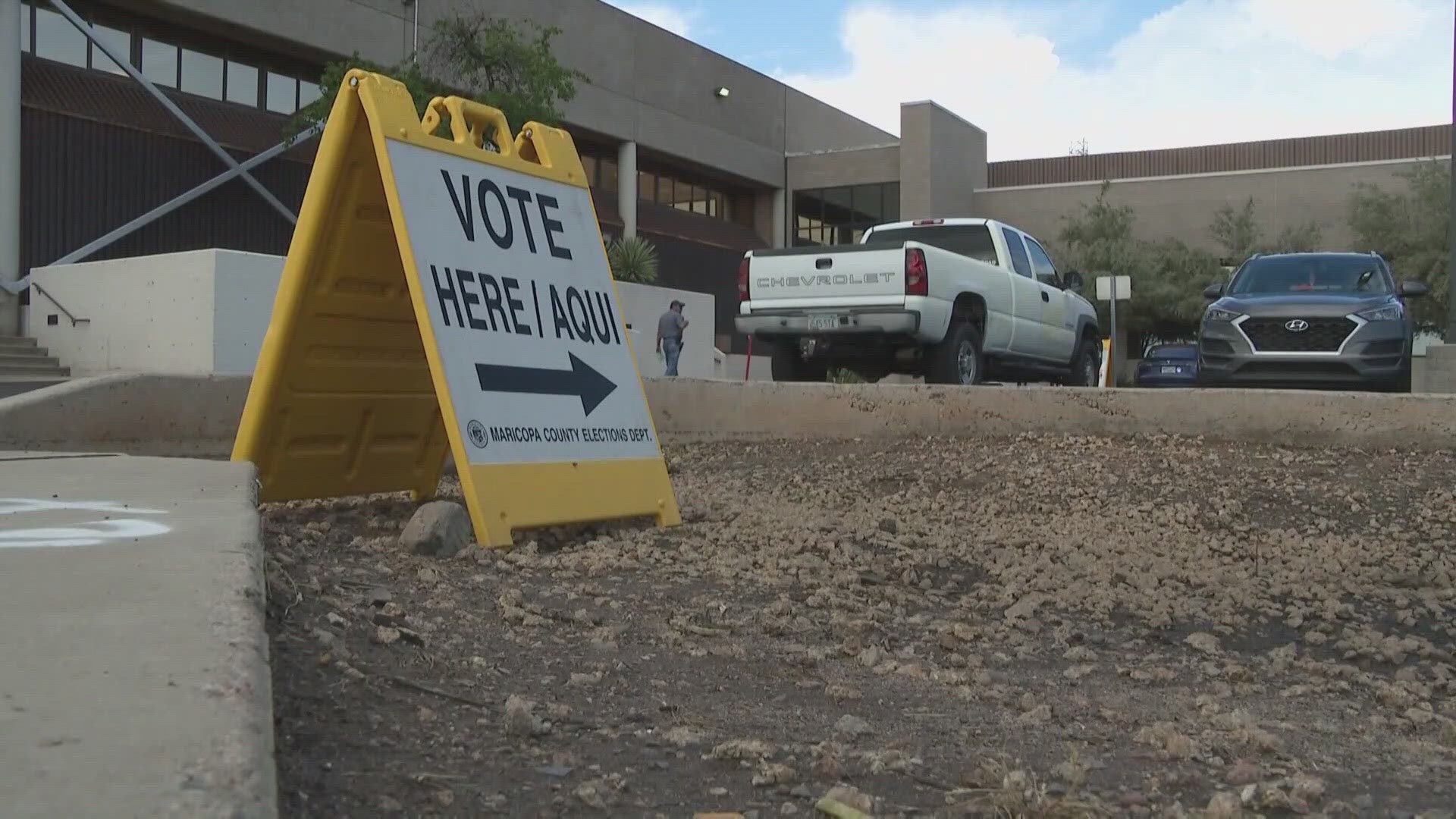PHOENIX — The Arizona Supreme Court ruled Friday that 98,000 longtime voters should be allowed to cast a full election ballot, despite not having complied with an Arizona law requiring proof of citizenship to vote.
The high court rejected a second option that would have restricted the voters to a so-called "federal only" ballot. That ballot has federal, Senate and congressional races, but no local or state elections.
The 98,000 voters, through no apparent fault of their own, were caught up in Arizona's unique two-tier identification requirements for voters.
Voters who document their proof of citizenship can vote a full ballot, with all elections and ballot measures.
Voters who don't provide proof but attest to their U.S. citizenship under penalty of perjury are restricted to the federal-only ballot.
The 98,000 voters were left in limbo after the Maricopa County Recorder's Office discovered earlier this month that Arizona's main database for tracking information on registered voters had incorrectly updated their citizenship status over the last 20 years.
According to the Secretary of State's Office, the group comprises registered Arizona voters in all 15 counties with a driver's license issued before October 1996 and registered to vote after February 2004.
The high court was on a tight timeline to produce a ruling in the face of looming deadlines to print and mail ballots.
Elections official statewide needed guidance from the court on which ballot to issue.
Maricopa County Recorder Stephen Richer asked the Arizona Supreme Court on Tuesday to take up the case on an emergency basis.
Richer recommended issuing the federal-only ballot to the 98,000 voters.
He stressed, however, "the vast majority of these voters are United States citizens who can provide documented proof of citizenship."
In what he called a "friendly response" to Richer's lawsuit, Democratic Secretary of State Adrian Fontes recommended the full ballot.
The decision has political implications.
No matter which ballot the Supreme Court chose, all 98,000 voters would have received a ballot in the competitive presidential and Senate races.
A federal-only ballot, however, would have removed 98,000 voters from state and county races, as well as ballot measures.
With control of the state Legislature at stake, the missing voters might have swayed the outcome of legislative elections.
The largest plurality of voters are registered Republicans, at 37 percent. Independent voters make up 29 percent and Democrats, 27 percent.
In Maricopa County, the state's largest county, more than 53,000 voters are affected, according to the secretary of state.
In response to the ruling Richer posted on X (formerly Twitter) thanking Secretary of State Adrian Fontes and the Arizona Supreme Court.
The Associated Press contributed to this article.
Decision 2024
Track all of our current updates with the upcoming elections in Arizona on our 12News YouTube channel. Subscribe for updates on all of our new uploads.

